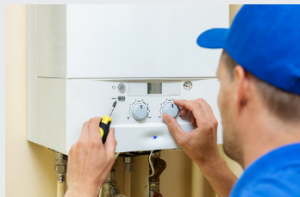You can select a gas, electricity, or LPG hot water system to heat your water. This type uses a larger burner and gas supply pipe and may require more frequent replacement. Electric hot water systems are also available and can be stored or instantaneous. They may also be solar-powered. But you should be aware that each of these options comes with different benefits. Here are some things to consider before choosing a hot water system.
 Most hot water systems have multiple locations where they supply heat. The heat is carried to each load through large main distribution and return lines. Each load is connected to the main lines in a parallel fashion, and each load is equipped with its pump. Make sure to add check valves to prevent the system from losing heat. In some cases, the heat loss between the tank and the load can be measured by a thermometer. Once you know how much heat your system needs, you can plan an optimal system.
Most hot water systems have multiple locations where they supply heat. The heat is carried to each load through large main distribution and return lines. Each load is connected to the main lines in a parallel fashion, and each load is equipped with its pump. Make sure to add check valves to prevent the system from losing heat. In some cases, the heat loss between the tank and the load can be measured by a thermometer. Once you know how much heat your system needs, you can plan an optimal system.
The size of your hot water system should depend on how many people live in your home and the amount of hot water they need. Electric tank heaters provide hot water for one person and larger models for families. Electric and solar systems typically require solar access and ample north-facing roof space. However, they are not available in all areas of the country. They can be converted to more efficient models by installing solar collectors.
There are two main types of hot water systems from distinctplumbing.com.au/hot-water-systems. There are storage water heaters and continuous flow systems. They use electricity or gas and solar power to heat the water. Both kinds of hot water systems can be solar-powered. To maximize your energy savings, consider a hybrid system. You can run a solar system on electricity while reducing your monthly electricity bills by 30%. But make sure that the hot water system you choose can handle the amount of hot water your family needs.
Electric storage hot water systems use electric elements and control the pressure and temperature of the water in a tank. The high pressure pushes the water into an insulated cylinder. Water temperature must be 60degC or higher to prevent the growth of Legionella bacteria. Electric storage hot water systems can be mains-pressure or gravity-fed. The materials used to build them also depend on their type. This type of system has more advantages than disadvantages.
A commercial hot water system is typically tank-based and uses a central reservoir. The water is heated to around 140F (60C) and cooled to a safe temperature before releasing it to fixtures. For example, it takes about four hours to heat one gallon of water to 60degC. The hot water is then stored in a central tank, preventing Legionella bacteria growth and ensuring that the hot water supply is available during peak times.
The efficiency of a hot water system is also highly dependent on its design. A good hot water system should be installed close to all home areas that use hot water. Consider a small storage system if your hot water requirements are irregular. A large tank may cause excess operating costs, and a small one can be combined with water-efficient fixtures to minimize heat loss in storage. You can use a small system when considering a high-efficiency continuous flow water heater.
Before buying a new hot water system, review the rules of operation for your current hot water system. For example, make sure that the water in your system is potable, meeting All-Union State Standards. You may also want to consider the type of production service. There are two main types of hot water systems: centralized and decentralized. Centralized systems use heat from heat and electric power plants. Decentralized systems use waste heat from industrial enterprises. Underground systems get heat from a variety of sources. The heat is then transmitted to consumers through the heating system pipelines.
